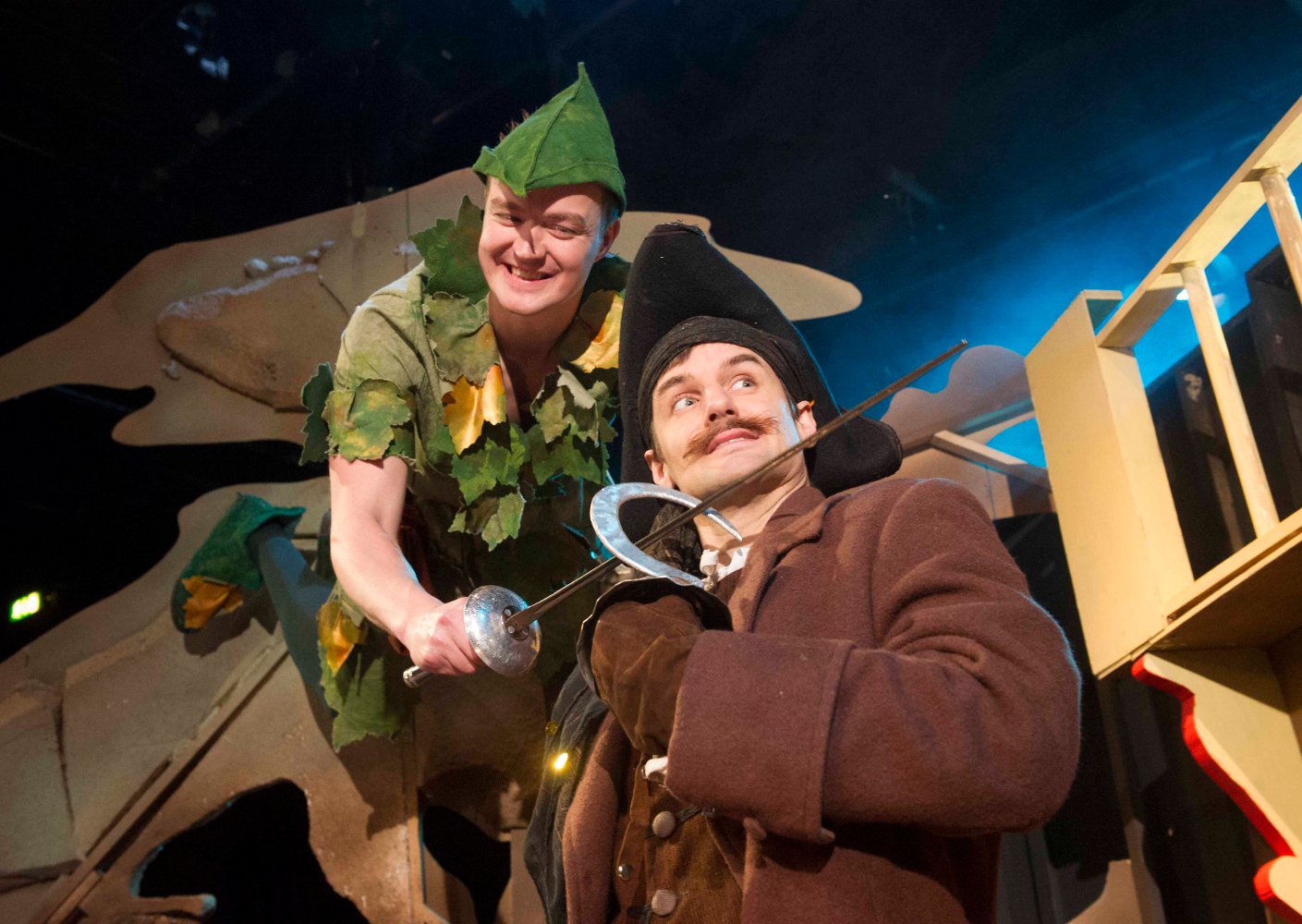This week’s theatre reviews: ‘The Duck House’, ‘Peter Pan Goes Wrong’
By Nick Levine

 THE DUCK HOUSE ***
THE DUCK HOUSE ***
Vaudeville Theatre, London, December 10-March 29The West End used to be full of farces, light comedies where people rushed in and out of doors, getting caught with their trousers down trying to hide their heterosexual affairs from husband and wives. It all went out of fashion in the ’80s and then Michael Frayn wrote the phenomenally successful comedy Noises Off that made these shows look so lame it seemed unlikely we’d ever see another. Now the farce is back but instead of marital infidelity at stake, these days we have characters rushing around trying to cover up political disgrace.
First there was the feeble stage version of Yes, Prime Minister; now we have The Duck House in which Ben Miller plays a slippery MP trying to hide his dodgy expenses claims. The problem is these new style farces promise to make satirical points about current politics, an impossible subject to keep topical as this would involve daily updates and re-rehearsals so, as in the case of The Duck House, which obviously took some years to get up and running, the satirical targets seem way out of date.
In the first half Ben Miller’s character has to rush around hiding all the things he’s claimed on expenses, improbably assuming his boss will notice them and make the connection. In the second half he has to persuade his boss that he lives in a second property he’s claiming for, which in fact is home to his student son and girlfriend (played by former X Factor star Diana Vickers), who unbeknownst to all is working as an S&M escort from the spare room. Guess who turns out to be her kinkiest client?
Ben Miller tries ever so hard to keep all this taut by channelling John Cleese’s mannerisms and frenetic energy and, I’ll confess, I laughed out loud quite a bit, particularly at the more surreal moments. But if you’re considering paying top West End prices I should warn you it all feels way past its sell by date, like watching a four year old repeat of Have I Got News For You.
 PETER PAN GOES WRONG ****
PETER PAN GOES WRONG ****
Pleasance Theatre, London, December 13-January 5
I laughed a lot more at the Pleasance Theatre the other night at Peter Pan Goes Wrong. The premise is that a student am.dram. society riddled with petty rivalries, pretension and unrequited passion is putting on a production of PP and you’re watching it.
It’s a brilliant combination of slapstick – faulty props and sets, flying sequences – and situation comedy as the various personalities clash and fight for attention and try to save the show as it disintegrates into anarchy. The comic timing is spot on, particularly from rival directors played by Henry Sheilds and Henry Lewis, and from David Hearn as Max, an actor who plays John Darling while harbouring a secret crush on Charlie Russell’s hilariously “street” Wendy.
The amazing thing is despite all the craziness the Peter Pan story itself still emerges as something poignant and magical.
I thoroughly recommend this although, to be fair, I saw it in an auditorium packed with supportive friends and family of the cast. The Pleasance Theatre can be a bit of an audience-free-zone so whether it’ll be quite so glorious if you see it on a night when there are only a few people watching remains to be seen. Hopefully there won’t be too many evenings like that, they all deserve to sell out.
 FROM MORNING TO MIDNIGHT **
FROM MORNING TO MIDNIGHT **
Lyttelton Theatre, National, London, December 6-January 26
There’s very few laughs or moments of poignancy in the current National Theatre production of From Morning To Midnight – in fact, there’s very little to engage anyone at all over a long two and a half hours of German expressionist drama from 1912.
Spindly Adam Godly plays a gloomy bank clerk who goes on the run for a day with a customer’s money in search of a meaningful experience. His encounters include his dreary family, the gamblers and competitors at a cycle race, the staff and clientele at a brothel and the congregation at a Salvation Army meeting.
All this is staged with a rag bag of tired old “poor theatre” and “Brechtian” tricks – actors moving in slow motion, waving sheets about etc – none of which are followed through or used consistently throughout. Everyone is a two-dimensional caricature and it’s impossible to empathise or care about anyone.
That’s fine, the playwright doesn’t want us to, his objective is to encourage us to take a look at the nature of humanity. The trouble is that the conclusions are trite and tired. I can save you a wasted evening by revealing the clerk discovers money doesn’t necessarily bring happiness.
I can’t imagine why he thought it might; the rest of us already knew that from virtually every work of fiction since Ancient Greece. Really tiresome.
